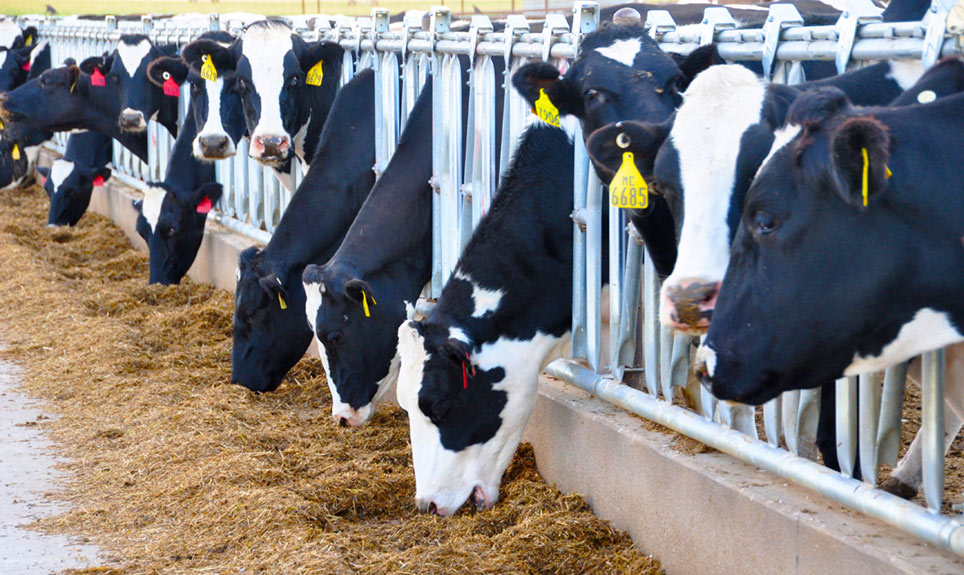A growing number of yogurt and ice cream brands, including Chobani, Yoplait, Breyer’s, Nestlé, and Ben & Jerry’s, are labeling their products as containing “Non-GMO Ingredients” or “No GMO Ingredients” even though the milk used to produce the products comes from cows not fed non-GMO feed.
Are consumers being misled because the main ingredient in the products—milk—is not non-GMO? Should non-GMO labels just apply to ingredients used to make a food product or should they extend to the feed given to cows that produce the milk?
Some industry experts say non-GMO should also mean non-GMO fed.
“It’s obviously been a gap in understanding on the part of the industry,” says Carl Jorgensen, director, thought leadership – wellness at Daymon Worldwide, a global leader in building retail food brands. “As more consumers become more aware of the GMO feed issue, it’s going to become harder to make a non-GMO claim if the animals haven’t been fed non-GMO feed.”
Sandy Kepler, president of Non-GMO Global, which provides consulting on non-GMO certification, says the Non-GMO Project has set a precedent for labeling foods non-GMO and requires the use of animal feed for verification.
“In this country, the Non-GMO Project has established that a non-GMO claim means using non-GMO ingredients, including animal feed. If a company is going to make a non-GMO claim for animal derivatives, at its core should be the use of non-GMO feed.”
In Europe, mandatory GMO labeling laws do not extend to meat, dairy, and egg products, so a growing number of EU nations have established national “non-GMO fed” labeling programs for animal products derived from non-GMO feed.
Risks of non-GMO labeling
Jorgensen says there are risks in using a non-GMO claim that is not third-party verified. “When you don’t have a third party insulating you from liability, then you have to have a pretty robust internal audit system to back up your claim.”
Otherwise, companies could face legal action. “There are teams of lawyers scrutinizing labels and looking for lawsuits opportunities. You really have to feel secure about claims you’re making,” Jorgensen says.
Chipotle Mexican Grill was sued in 2015 over its claim that the restaurant chain had transitioned to non-GMO ingredients. The plaintiff said Chipotle’s meat and dairy were not non-GMO because the animals were not raised on non-GMO feed. Chipotle argued that it had disclosed that its meat and dairy could come from animals fed genetically modified feed. A federal judge later dismissed the case.
Transparency is important when making self-proclaimed non-GMO claims, says Kepler. “If a company is going to make a non-GMO claim, they need to have the definition behind it made public.”
Otherwise, she says: “A non-GMO claim without a transparent definition or a third-party standard just creates doubt and confusion among consumers. We have to make this easy for consumers.”
Jorgensen emphasizes that if a company is making a self-proclaimed non-GMO claim, then it must be defensible.
“If you aren’t going to use third-party certification, you really need to think through all the ramifications and where GMOs could enter into your supply chain for your product. You need to put in some resources to verify your ingredient suppliers all the way up the supply chain.”
But, he says third-party certification is the better option. “It gives the brand and products a lot more security in making the claim, there’s so much less liability.”
Availability of non-GMO feed
Yogurt maker Dannon has committed to using non-GMO feed in the milk produced for its yogurt products, and recently announced that several of its products are now Non-GMO Project Verified. Vincent Crasnier, Dannon Pledge program lead, told FoodNavigatorUSA that a growing number of consumers are looking for the Non-GMO Project seal and that there is a need to educate consumers about the importance of using non-GMO feed.
Sourcing non-GMO feed has been a challenge though Dannon says it is finding sufficient supplies. Ben & Jerry’s and Chobani have publically announced their commitment to source non-GMO feed.
“Transitioning to non-GMO is not just about the sourcing,” Kepler says. “No one wants farmers hurt in the transition as new sources are considered. Ideally, a company and farmers arrive at non-GMO together. This takes time and thoughtful consideration.”
Non-GMO feed supplies are becoming more readily available, according to Greg Lickteig, director at The Scoular Company.
“Non-GMO feed ingredients, including corn and soy products, are generally available in the market for those buyers committed to sourcing them. Furthermore, farmers are willing to produce the quantity of Non-GMO grains needed to meet demand. The challenge is to allow farmers and the entire supply chain adequate time to adjust and secure supply,” he says.
National non-GMO standard needed?
With the growing number of non-GMO claims is there a need for a uniform national non-GMO standard similar to the National Organic Program for organic foods?
Kepler has doubts about a non-GMO standard overseen by a U.S. government agency. “I like the idea of an independent, voluntary standard because I think we avoid the risk of adulteration by special interests. If it stays private and voluntary, we have a better ability to control the outcome of the standard.”
Jorgensen expresses similar doubts about a government-based labeling program but sees the value of a national standard.
“I think it’s inevitable. Non-GMO continues to be the fastest-growing label in the market place. At a certain point, it will be so widely used there will have to be an industry-wide standard behind it.”





